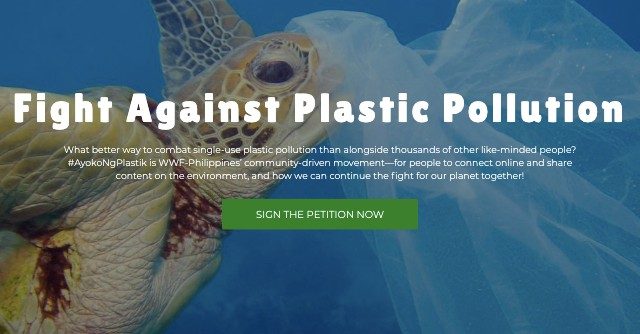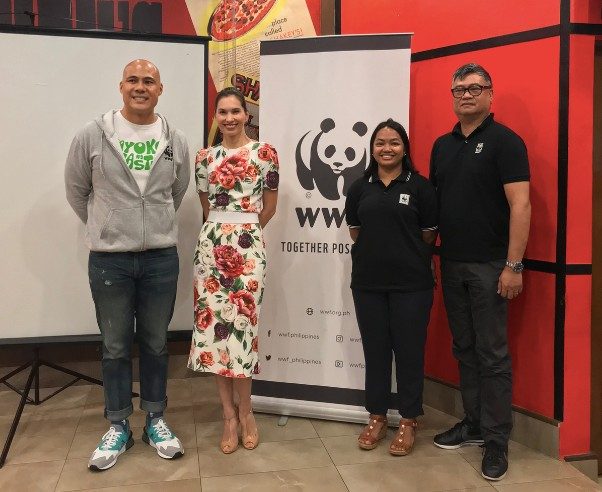SUMMARY
This is AI generated summarization, which may have errors. For context, always refer to the full article.

In response to the growing problem of plastic pollution, where the Philippines has been identified as one of the world’s largest contributors of plastics in the ocean, World Wide Fund for Nature (WWF) has launched its newest initiative – “No Plastics in Nature”.
“Everywhere you go there’s plastic. It’s not just in the ocean. It’s also in our soil and our rivers,” said Jose Angelito Palma, president and chief executive officer of WWF.
In 2016, the amount of plastics produced globally has reached 396 million metric tons – equal to 53 kilograms of plastic per person. This affects not only the environment but our health as well. The conservation group says that we can be ingesting approximately 5 grams of plastic a week.
With the “No Plastics in Nature” initiative, WWF hopes to make the Philippines free from unnecessary plastic waste. Jose clarifies that they’re only looking at single-use plastic.
For Nanette Medved-Po, founder of Generation HOPE, plastic isn’t the enemy.
“What makes plastics bad for the environment is that we fail to figure out what to do with it after using it,” she said.

The initiative consists of four main strategies: lobbying for a global legally binding agreement on plastic pollution, Plastic Smart Cities, #AyokoNgPlastik, and Plastic Action (PACT).
Plastic Smart Cities fights plastic pollution by improving the collection, recycling system, reduction of key waste plastics, and landfill management of every city.
#AyokoNgPlastik aims to educate the general public about plastic pollution, its impact, and how people can help address it through a Facebook community.
Meanwhile, PACT helps businesses reduce single-use plastics in their supply chains, workplaces, and business operations.
Shakey’s Philippines, WWF’s newest partner, is part of PACT.
Earlier this year, they launched the “Just One Click to Save the Planet” program to allow their guests to order online and donate to support WWF’s conservation efforts.
Speaking on behalf of Shakey’s Philippines’ president and CEO, Vic Gregorio, marketing manager, Ghena Austerio said that their organization is committed to operate more sustainably.
“We know that we can do more if we all work together,” said Ghena.
To know more about the “No Plastics in Nature” initiative, please visit their website. – Rappler.com
#GoodRap is a weekly column that aims to feature lighthearted yet meaningful stories from here and around the globe. We hope this provides an oasis for anyone who wants to take a quick escape from the gloom and doom of the everyday world.
Add a comment
How does this make you feel?
There are no comments yet. Add your comment to start the conversation.